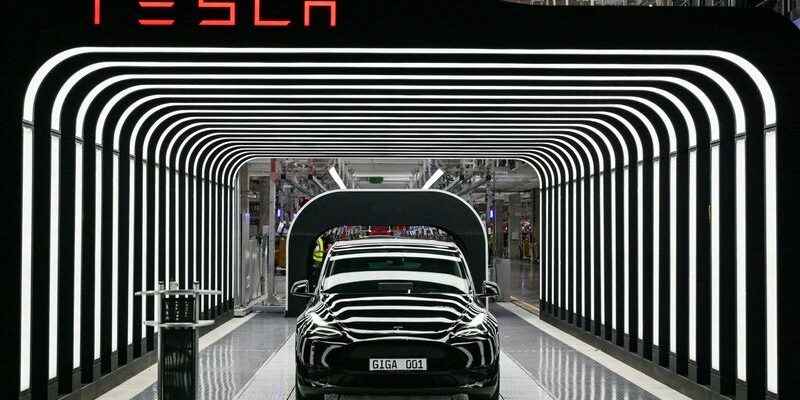by Paul Lienert
(Reuters) – The world’s biggest automakers plan to spend nearly $1.2 trillion (1.23 trillion euros) by 2030 on the development and production of millions of electric vehicles, as well as on batteries and raw materials needed for production, according to a Reuters analysis of public data and projections released by companies.
The amount of investment in vehicle electrification, not previously published, eclipses previous estimates from Reuters and is more than double the most recent calculation published a year ago.
For comparison, the market capitalization of Alphabet, the parent company of Google and Waymo, is $1.3 trillion.
Automakers have planned to manufacture 54 million electric vehicles in 2030, more than 50% of total vehicle production, the analysis shows.
To support such a level of production, they plan, along with their battery manufacturer partners, to install 5.8 terawatt hours (TWh) of battery production capacity by 2030, data from Benchmark Mineral Intelligence and manufacturers shows.
Tesla’s goals in the field are the most ambitious, its chief executive Elon Musk having presented a plan to build 20 million electric vehicles by 2030, which would require 3 terawatt hours of batteries. Musk said in late October that Tesla was already working on a smaller vehicle platform that would be priced at half the Model 3 and Model Y.
Although Tesla hasn’t disclosed all of its spending plans, such exponential growth – 13 times larger than the 1.5 million vehicles it hopes to sell this year – will cost hundreds of billions of dollars, analysis shows. Tesla financial information and forecasts for global electric vehicle demand and battery and battery mineral production by Reuters.
The German Volkswagen, although behind Tesla, also has ambitious plans until the end of the decade. The group plans to spend more than $100 billion on developing its global portfolio of electric vehicles, building new battery “gigafactories” in Europe and North America, and securing supplies of raw materials.
Toyota Motor, meanwhile, plans to invest $70 billion to electrify vehicles and produce more batteries, and expects to sell at least 3.5 million battery-electric models in 2030. It plans to produce at least 30 battery-electric models. different and hopes to transform the entire Lexus lineup during this period.
Ford Motor continues to increase the level of its spending on new electric vehicles – which now stands at $50 billion – and to reach at least 240 gigawatt hours of battery capacity with its partners. The automaker aims to produce around 3 million battery electric vehicles in 2030, half of its total volume.
Mercedes-Benz has earmarked at least $47 billion for the development and production of electric vehicles, nearly two-thirds of that to boost its global battery capacity with its partners to more than 200 gigawatt hours.
BMW, Stellantis and General Motors each plan to spend at least $35 billion on electric vehicles and batteries. Stellantis presented the most aggressive development program in batteries, with a planned capacity of 400 gigawatt hours with partners by 2030, including four factories in North America.
(Reporting Paul Lienert in Detroit; French version Dagmarah Mackos, editing by Kate Entringer)
